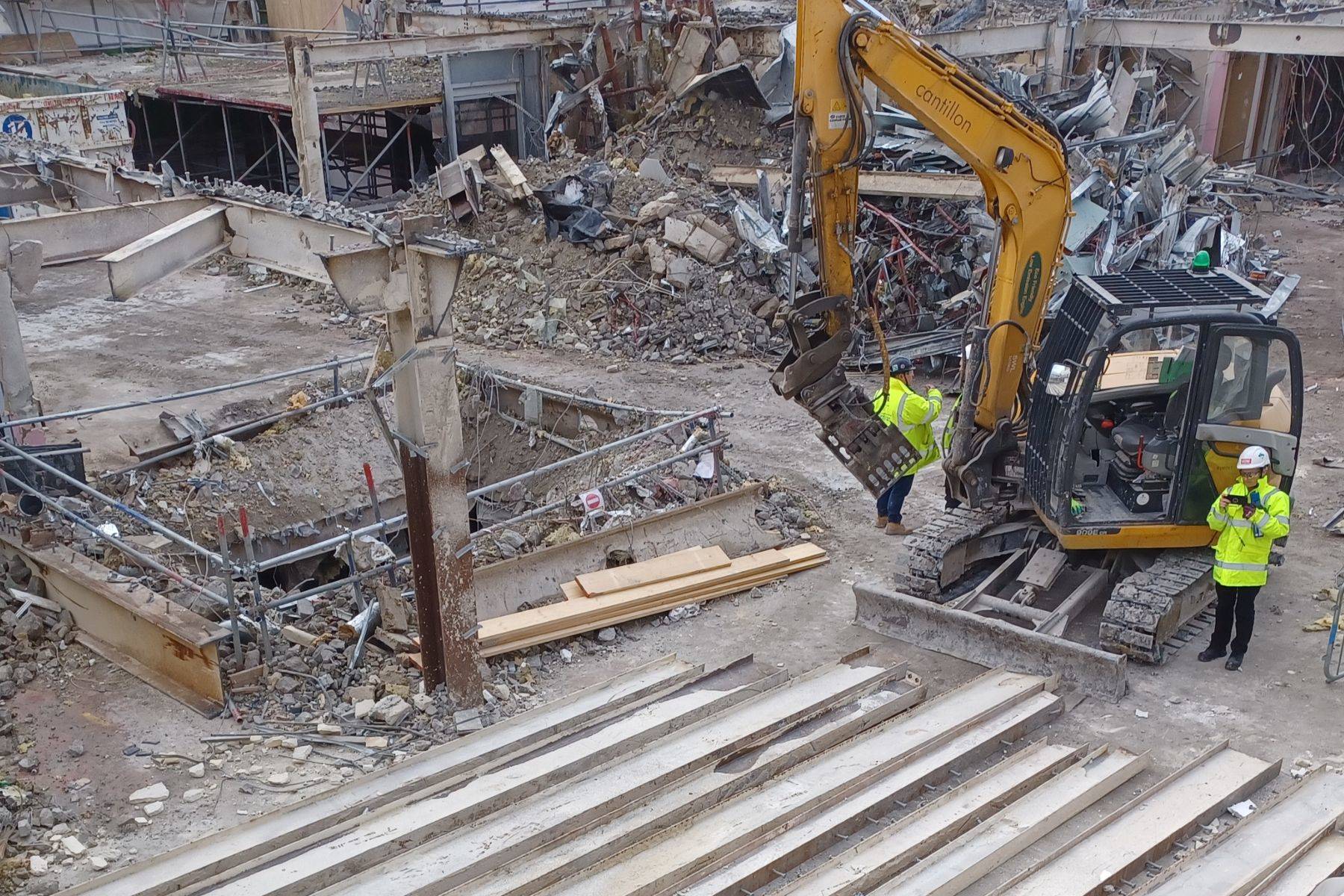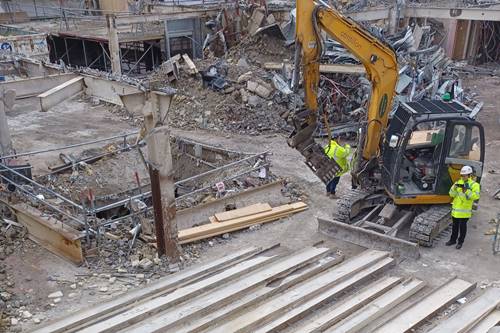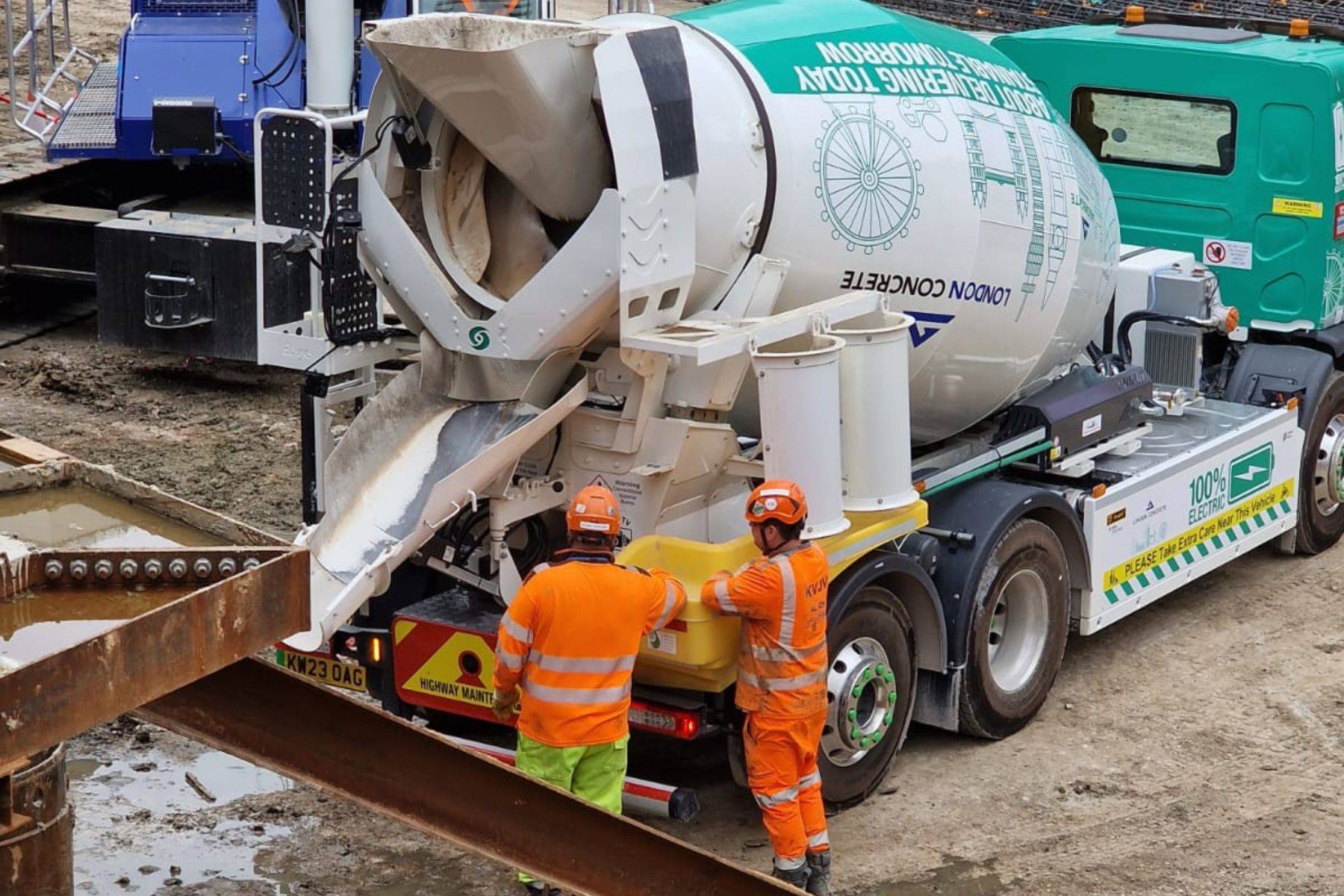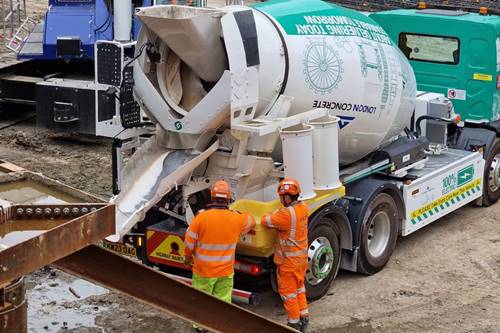
Cladding milestone at 1 Broadgate
26 Jan 2024The construction of 1 Broadgate reached a new milestone this week with the installation of the first cladding panels.
To celebrate Earth Day, our sustainability experts, along with representatives from client British Land and partners and construction companies, William Hare, Morrisoe, and Cementation Skanska talk about sustainability on the Broadgate development.
The Broadgate framework stands as a beacon of commitment to sustainability, with a clear vision set by our client and partners.
Today, in support of Earth Day, we caught up with Sir Robert McAlpine's sustainability managers, Kathryn Weatherburn and William Townsend, who share insights into the team’s unwavering focus on sustainability at the Broadgate campus in the City of London.
Charles Horne, Project Director at British Land, Matthew Nesbit, Group Board Director at William Hare Group, Chris Roberts, Project Manager at Cementation Skanska, and Lee Henry MCIOB, Project Manager at Morrisroe also add their perspective and reflect on the collaborative approach towards achieving those ambitious sustainability goals, the progress we've made and the challenges that lie ahead.

 The journey towards sustainability within the Broadgate framework began with a vision – to create a campus where people not only work but thrive in harmony with the environment. As global awareness of climate change heightened, so did the ambitions of the project.
The journey towards sustainability within the Broadgate framework began with a vision – to create a campus where people not only work but thrive in harmony with the environment. As global awareness of climate change heightened, so did the ambitions of the project.
“A lot has changed in terms of sustainability and global warming since 2016. So, our initial brief was very light touch. Since then, British Land have issued their sustainability policy, which set some pretty stretching targets for 2030. That is now our ambition. That is how we're delivering our projects at Broadgate.” Charles Horne, Project Director at British Land.
One of the cornerstone principles of the Broadgate framework is early engagement. By involving stakeholders from the outset, the project harnesses a wealth of ideas and opportunities to minimise carbon footprint and maximise efficiency. From design conceptualisation to supply chain management and construction project management, every aspect is carefully planned to align with the overarching sustainability goals.
The key steps for being able to deliver the outcomes that we have on the two projects that we're involved with here on the Broadgate framework is essentially early engagement. Being able to be involved in the design process at an early stage allows us to put forward all of the different levers that are available to a project of this scale in order to achieve ambitious outcomes on the carbon reduction. By being engaged early, we have an input into the design process that allows our ideas and the full suite of opportunities to be explored.
Matthew Nesbit Group Board Director at William Hare Group.
At the forefront of this endeavour is a collaborative spirit that permeates every level of the project. Suppliers, contractors, and stakeholders are unified by a common commitment to sustainability. From exploring innovative materials to implementing groundbreaking techniques, every decision is guided by the principles of environmental responsibility.

 A shining example of this commitment is the pioneering use of sustainable materials. From ground granulated blast slag (GGBS) to basalt reinforcement in place of steel, the Broadgate framework embraces alternatives that significantly reduce carbon emissions. By replacing traditional materials with eco-friendly alternatives, the project not only mitigates its environmental impact but also paves the way for a greener future.
A shining example of this commitment is the pioneering use of sustainable materials. From ground granulated blast slag (GGBS) to basalt reinforcement in place of steel, the Broadgate framework embraces alternatives that significantly reduce carbon emissions. By replacing traditional materials with eco-friendly alternatives, the project not only mitigates its environmental impact but also paves the way for a greener future.
“The Sir Robert McAlpine Team here on these projects are really upskilled in sustainability. It starts at the procurement level. The procurement teams have to have a good understanding of what the sustainability risks are to the project, but also the opportunities for the client as well. Then once the project is in construction stage, the project management team have to have a good understanding of what targets we have and how we deliver those,” Kathryn Weatherburn, Senior Sustainability Manager at Sir Robert McAlpine.
As we celebrate Earth Day, let us draw inspiration from initiatives like the Broadgate framework. By embracing sustainability as a guiding principle, we can pave the way for a brighter, greener future. Sir Robert McAlpine's sustainability commitment means we are continually looking to the future, working with clients, construction companies and communities as we construct a better world for future generations.
Happy Earth Day!
The Broadgate framework has been hugely successful, fundamentally because we have an ethos of trust, honesty and collaboration, and that collaboration piece is what makes it so successful. There is no doubt in my mind that Sir Robert McAlpine is leading the field in terms of their sustainability team.
Charles Horne Project Director at British Land.
The construction of 1 Broadgate reached a new milestone this week with the installation of the first cladding panels.
We are thrilled to announce we have been appointed by the Broadgate joint venture, between British Land and GIC, to deliver 2 Finsbury Avenue (2FA), a dual high-rise, mixed-use building located in the heart of Broadgate.
Company Carbon Manager, Simon Leek, shares insight into how the demolition and enabling works at 1 Broadgate in London have adopted circular economy principles.

